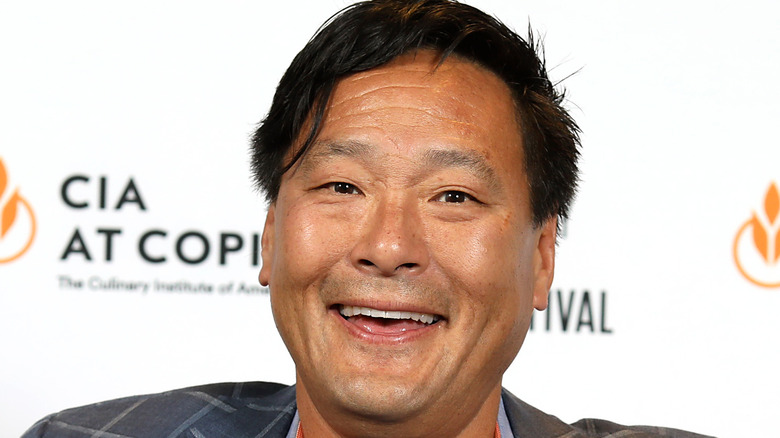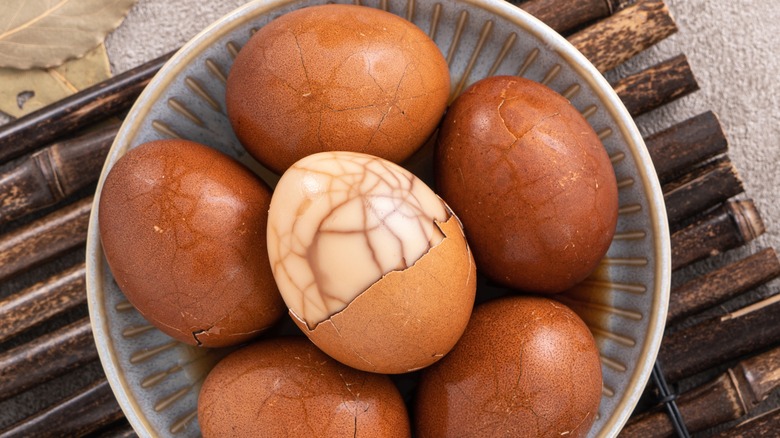The Unexpected Ingredient Ming Tsai Uses In Deviled Eggs
Celebrity chef Ming Tsai may be known for his East-West dishes, but by no means does he say he prepares any type of fusion cuisine. In a 2015 interview with Food & Wine, Tsai said he was aiming to intelligently integrate Asian techniques and ingredients into Western processes and components, which is not the same as fusion.
He added that fusion is something you do with atoms, for instance, which creates a rather harsh outcome of two different things mixed together. But, on the other hand, East-West food is a blending of ingredients and cooking methods for him.
Given his cooking philosophy, fans shouldn't wonder about Tsai's intent when he reveals that he prepares deviled eggs by using a half cup of loose leaf lapsang souchong tea, to which he adds soy sauce, per Chicago Tribune. While the chef's decision to use lapsang souchong, which is a smoky Chinese tea, might cause fans in America to look twice, the hack is commonly used to make hardboiled eggs in Taiwan. These types of eggs, also known as tea eggs, are a popular snack on the go and are so common they can be found everywhere, from tourist attractions to convenience stores, Michelin notes.
Tea eggs are common in Taiwan
The smoky tea isn't just added to deviled eggs at random. Instead, Tsai flavors his hardboiled eggs by cracking them and cooking them in a gently simmering mixture made of tea and soy sauce for a few minutes. He then takes the pan off the heat and steeps the eggs for as little as three hours to as long as overnight before preparing deviled eggs as one normally would, per Chicago Tribune.
Cracking them before cooking allows the tea to get under the shell, leaving the egg whites with a web-like pattern. As it permeates the shell, the flavorful tea broth also colors the egg so that the white becomes lightly tanned.
Not all tea eggs are made with Tsai's preferred lapsang souchong. This type of black tea, which is smoked over a pine wood fire, per L'Autre Thé, can be difficult to acquire because the way it is made can compromise its quality, and as a result, it can be expensive. In Taiwan, traditional tea eggs are made with a blend of black tea and oolong, but you can experiment the way Taiwanese Chef Kai Ho did; he now makes his tea eggs with pu'er tea, per Michelin.

